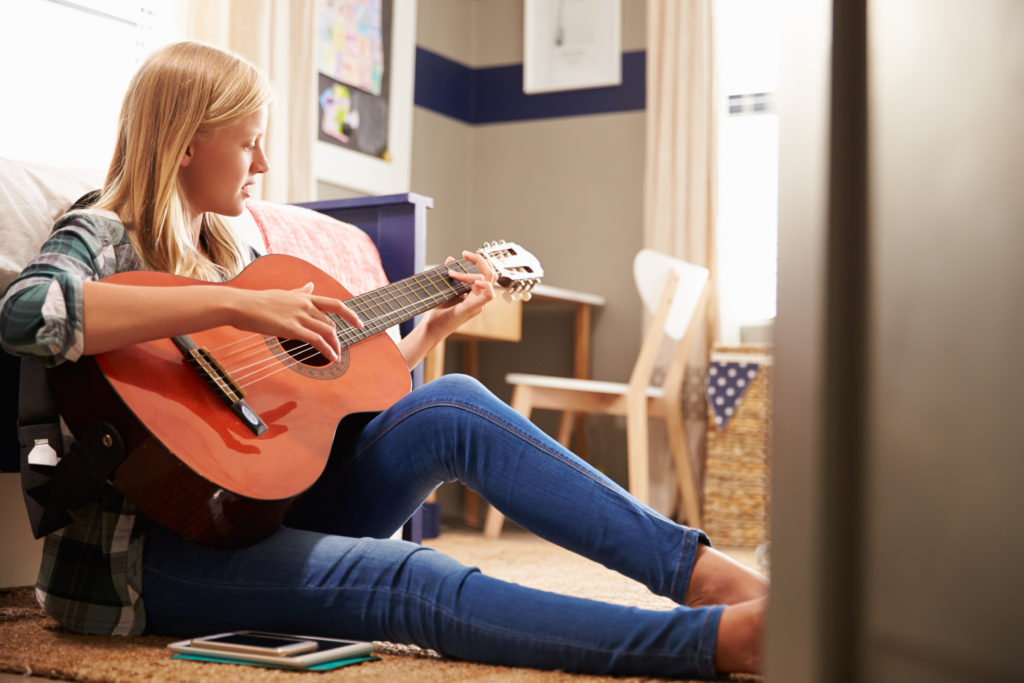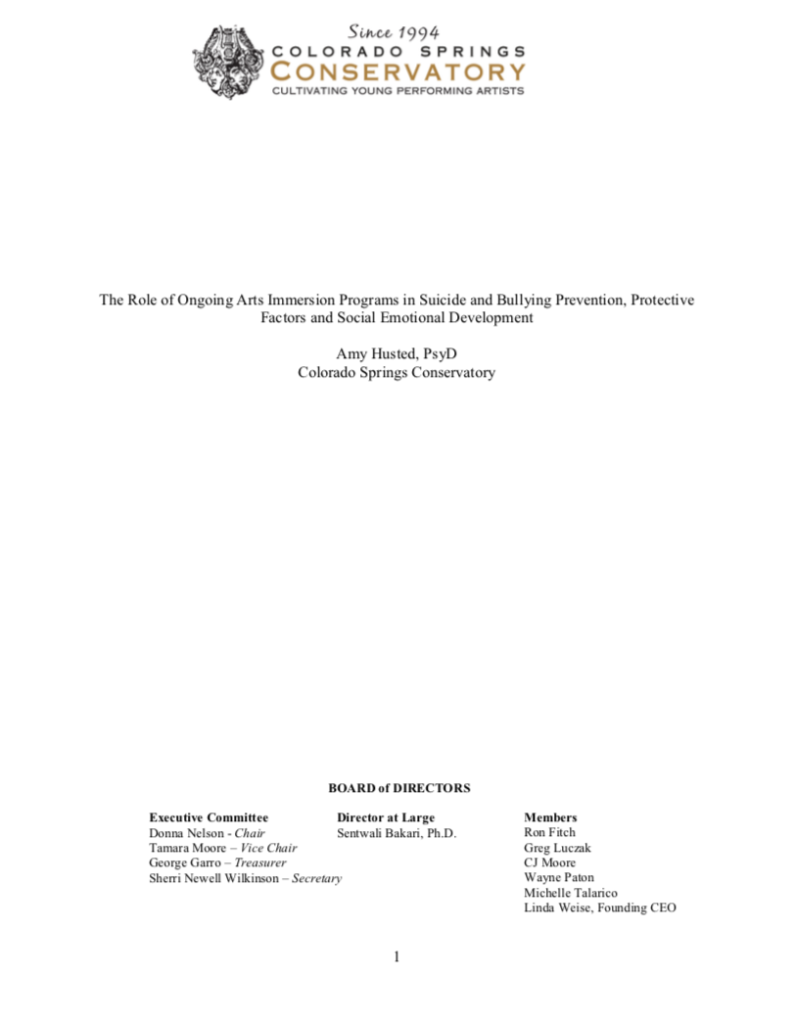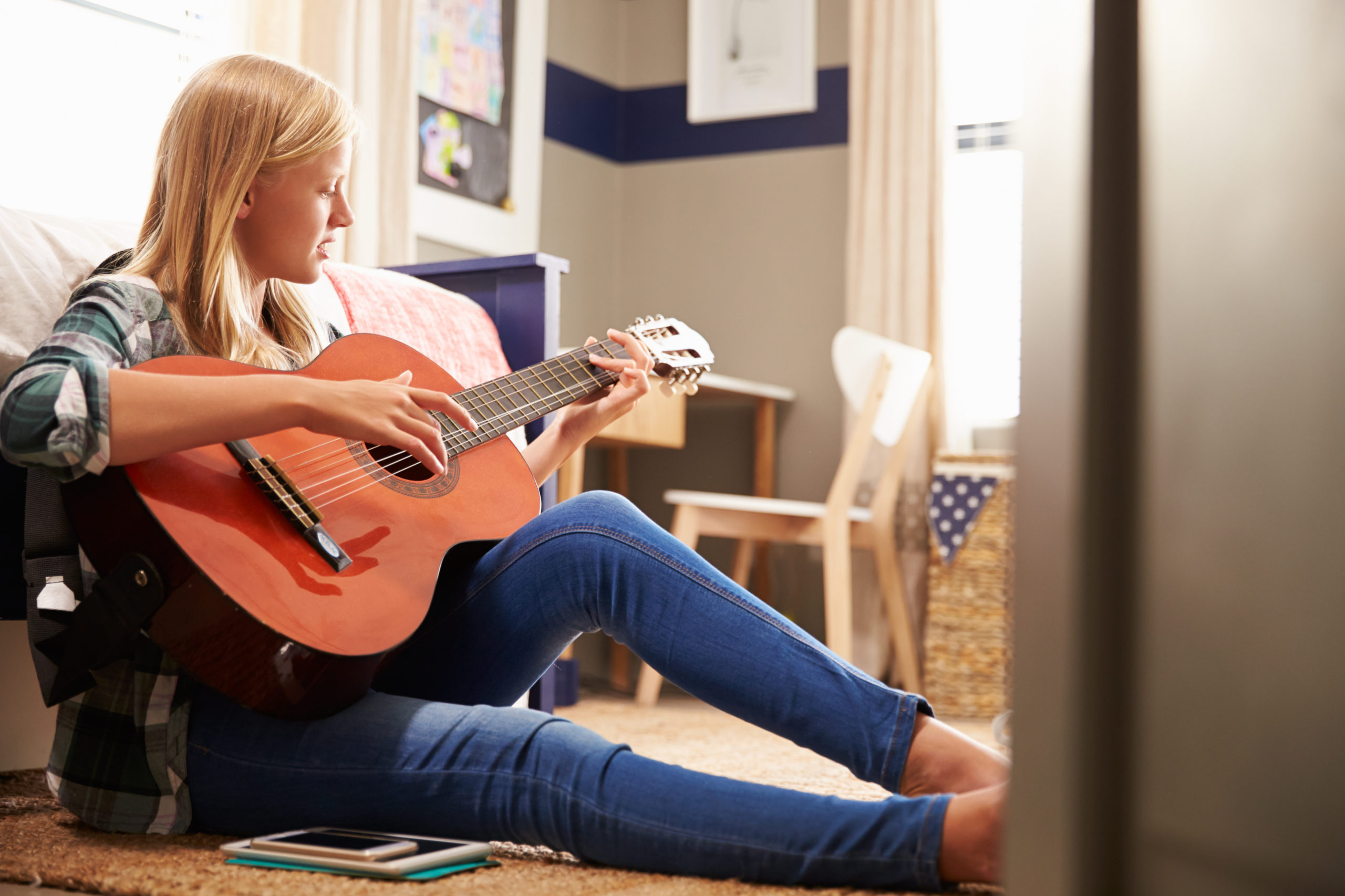
Amy Husted, PsyD writes about the connection between creative arts and mental health.
Discover what CSC’s results have been and what we’re doing now.
The Role of Ongoing Arts Immersion Programs in Suicide and
Bullying Prevention, Protective Factors and Social Emotional Development
Amy Husted, PsyD Colorado Springs Conservatory
The Mission of the Colorado Springs Conservatory (CSC) is to inspire, motivate and challenge students to aspire to their highest potential as artists and human beings through arts immersion studies and community arts advocacy.
The CSC is the Pikes Peak region’s only non-auditioned preparatory performing arts conservatory, offering world-class immersion studies and programs in instrumental music, vocals, music theory, theater arts, recording arts, dance, movement, history, and humanities to young people age’s birth through high school seniors and adults in the community.
The organization was founded in 1994 by Oberlin Conservatory and Juilliard School educated Linda Weise, whose mission at that time was to provide a unique home for artistically inclined high school students who were likely to pursue an education in the arts after graduation.
As CSC became better known in the region and recognized as having programming that not only provided youth the opportunity to grow creatively and personally through the arts but also grow prosocial skills and build protective factors in a physically and emotionally safe environment, CSC began expanding programming and outreach efforts.
These efforts resulted in partnerships within the community leading to more intentional and informed programming for all youth, particularly at-risk and underserved youth populations.
1994-2001 Founding & First Graduating Class
- 1994: Colorado Springs Conservatory founded as a non-auditioned, after school with 20+ youth enrolled of high artistic talent. Rigorous CORE arts immersion curriculum implemented with a compliment of nearly 50 outreach performances presented by students.
- 1996: First adult ‘drop in’ piano classes offered at CSC.
- 1999: First class of after school students graduate to nations most prestigious institutions; Oberlin Conservatory, Webster Conservatory in St. Louis, Boston University, Brandeis University to name a few. Enrollment grows to 40 students
2002-2010 Expansion to Daytime Education Partner Programs
- 2002: First daytime Partner Program (PP) launched with regional Head Start Education partner, CPCD. Enrollment grows to 80 students
- 2003: Second PP begins with Harrison School District (HSD2) to serve our regions most underserved and at-risk population. Out of each of these daytime PP, students are identified to receive scholarship and attend the after-school CORE program. Enrollment continues to grow steadily.
- 2003 to present PP grows to serve four (4) regional school districts during the school day. Additionally, Mountain Vista Home School Academy (MVHSA) enlists the CSC to provide arts programming on site for its students. Enrollment continues to grow and programs are now offered for students 4 through 18 years of age.
2011-2015 Community Programs
- 2011: A Positive Note (APN) is launched. A music program designed for young adults with special needs.
- 2013: Citizen Soldier Connection music program launches to provide studies for enlisted and retired military and their families from the five (5) regional military installations.
2016 CSC Recognized By Our Public Sector For Impactful Work Related To Social Emotional Well Being In Childeren
- 2016: CSC partners with El Paso County Department of Public Health to better understand the impact of the outstanding programming on the social/emotional well- being of all enrolled students.
- 2017: Produces an original musical through Project 4A, “Jack, a moral musical tale” the story of a transformed bully with the hypothesis: Participation in a rigorous performing arts after-school curriculum during the 4th and 5th grades builds known protective factors that prevent suicide and address: Bullying Awareness, Drug Use Prevention, Teaching Empathy, Self Confidence, Self-Respect, and Resiliency. Project 4A focused on Arts, Access, Activities and Awareness for youth specific to El Paso County, specifically as it relates to suicide and bullying prevention. Results from the Connor-Davidson Resilience Scale (CD-RISC 25) © indicate that students who participated in Project 4A their resiliency scores by 10 points over the course of the project.
- 2018: First student from Fourth Judicial District is enlisted in an effort to understand impact of the CSC programming on decreasing recidivism. Consequently, CSC captures statewide ‘Transforming Safety’ grant, affording state leadership the opportunity to understand how the arts can play a significant role in changing the projection of the futures of at-risk youth away from the school to prison pipeline, by building resiliency, prosocial skills and protective factors through arts immersion studies.
Currently
- 2019: CSC celebrates nearly 1,000 students served on site annually and maintains a 100% high school graduation rate and college placement for all graduating high school seniors to the colleges, conservatories and universities of their choosing. Host to the region’s most prestigious and artistic mentors. Music and theater programs are offered six days a week with over 300+ outreaches and productions as part of the curriculum. Community, Regional and State civic and arts partners include City of Colorado Springs, El Paso County, regional school districts, Chamber of Commerce, The Resource Exchange, Goodwill, Arc, Colorado Springs Philharmonic, Chamber Orchestra of the Springs, ENT Center for the Arts at UCCS, Colorado College, Pikes Peak Community College and many more.
The Conservatory provides much needed arts education in the Pikes Peak Region and offers students the opportunity to discover their talents and interests; come to appreciate that hard work, dedication, and focus will help them achieve their career goals; and understand that a complete education (minimally high school graduation but more specifically the pursuit of higher education) is key to future success. The CSC has a 25-year track record of student success and community advocacy. The younger we engage students the more likely they are to stick with the program throughout their elementary, middle and high school years (100% of high school seniors at CSC CORE program graduate high school and enter higher learning institutions of their choosing). Students develop a tendency for leadership and creative problem solving, empowerment, and self and situational awareness. As a result of this track record of success and positive outcomes, regional leadership have recognized CSC as a best practices program and continues ongoing review of impact on systemic, societal issues such as bullying, foster youth and teen suicide prevention.
JACK, A Moral Musical Tale
In 2017, through a partnership with the El Paso County Department of Public Health, CSC was able to implement a dynamic program, Project 4A, that addressed bully and suicide prevention. Project 4A was a semester-long after-school program for 4th and 5th graders selected from Trailblazer Elementary, culminating in a production of an original musical titled “Jack, a moral musical tale” the story of a transformed bully. The hypothesis behind this program was that participation in a rigorous performing arts after-school curriculum during the 4th and 5th grades builds known protective factors that prevent suicide. The Project 4A initiative focused upon measuring Self Awareness, Empathy and Resilience based on the tenets of engagement alongside the tangible and intangible outcomes of each component of the CSC CORE curriculum. Students that participated in this program were administered the Connor-Davidson Resilience Scale (CD- RISC 25) © and results indicated that students increased their resiliency scores by 10 points over the course of the project raising them from a score equitable to those with depression and previous suicide attempts to a level of resiliency comparable to those not identified as being at risk for suicide.
Protective Factors
Protective factors identified in the research which improve resilience in children include sense of self-efficacy, self-regulation, connection, attachment, and school achievement and involvement.
CSC Outcomes
- Self-efficacy
- 95% of Partner Program students showed improvement in the eight areas measured by the surveys, including self-efficacy, confidence, trust, and academic achievement.
- School achievement and involvement
- 100% of the high school seniors in the CORE program graduated and have been accepted to enter higher education institutions of their choice.
- Data from Harrison School District shows that 99% of students who have participated in the CSC Partner Program graduated high school.
- Pre-K students participating in the CPCD Head Start partnership with the Conservatory scored a 90% or higher on the GOLD math test. Evaluations show that classes at the CSC played an integral part in those successful math scores
- Connection
- Interviews as well as exit and entrance surveys with HSD2 middle school students included the following: 98% improved their collaboration skills, confidence, and openness to new experiences and to develop new skills; 86% improved skills specifically used in their classes at school; and 100% commented on their personal contributions to the arts after having the CSC experience.
- Attachment
- Results from Citizen Soldier Participants have indicated positive outcomes such as increased family bonding, increased self-confidence, decreased stress levels, decreased feelings of isolation and positive effects on symptoms related to PTSD & TBI.
- Self-regulation
- Preliminary data from Transforming Safety students suggests that participation in this program at CSC elicited increased ability to handle new/different situations (i.e. new skill acquisition and demonstration), managing difficult emotions well (i.e. vulnerability, embarrassment, shyness), self-confidence, peer support, teamwork, and empathy.
Social Emotional Skill Development
Social emotional skills such as emotion management, empathy, teamwork, initiative and problem solving are imbedded within CSC’s programming:
- Rigorous programming & growth mindset -> perseverance, dedication and focus – > self-confidence, self-efficacy -> take initiative in leadership roles, positive self- challenge and positive goal setting -> ability to overcome difficulties -> ability to problem solve effectively
- Groups activities and performances -> view themselves as part of a group -> take other interests and well-being into consideration -> they see the benefit of doing so and the detriment of not doing so -> subordinate their wants and needs to the wants and needs of the group -> development of strong teamwork skills, emotion regulation and development of empathy.
Conclusion
In light of this progress, CSC has begun development and implementation of a scientifically validated evaluation tool to assess impact in more depth.
With this tool in place the CSC will possess the ability to refine their processes to increase efficacy and create a model that can be replicated on a national level.
In doing so, increased awareness of the excellent programming available at the CSC will be generated leading to more families and subsequently, more students being afforded the opportunity to participate.
This will also further ignite the conversation around the fact that arts can play an integral role in healthy social emotional learning and development in youth which can serve as a viable prevention and intervention option.




